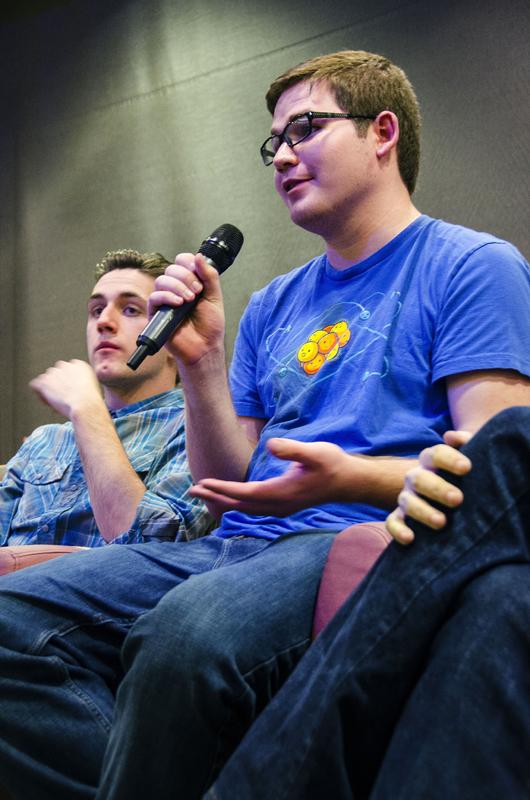While attending Skepticon, an annual skeptics convention, junior Tony Lakey came across something that startled him.
A sign in the window of a nearby ice cream shop said the shop was a Christian business and wouldn’t serve Skepticon attendees.
These kind of ill feelings are not uncommon, said Lakey, president of MU Skeptics, Atheists, Secular Humanists and Agnostics.
For that reason, MU SASHA partnered with the Chancellor’s Diversity Initiative to sponsor a discussion on secularism titled “My Book, Your Book, Their Book, No Book — Exploring Secularism” on Wednesday night.
After receiving positive feedback from an event last semester that discussed Islam, CDI ambassadors decided to sponsor other events focusing on different religions and beliefs, Coordinator of Diversity Programs Charlie Parker said.
“People liked the way we went about it,” Parker said. “People liked how we didn’t approach it in a ‘preach-first’ kind of way. We created a safeguard for people to learn about other communities here at MU.”
CDI chose MU SASHA for the this event because secularism hadn’t been focused on before, Parker said.
“No one had ever reached out to MU SASHA for something like this before,” Parker said.”We hope that we can highlight a lot of our minority communities here and build respect. At CDI, we are totally inclusive and we want to reach out to our minority and majority faiths and make the campus as a whole more inclusive.”
The discussion began with an icebreaker to help attendees get acquainted with each another and create a more comfortable atmosphere, Parker said.
After the icebreaker, a six-person panel consisting of MU SASHA members and religious studies professor Dennis Kelley spoke about their personal experiences identifying as atheist or agnostic and answered questions from attendees.
“When we select the panel, we go about it very strategically,” Parker said. “We want to make sure our panel represents as many parts of that community as possible to show the spectrum of that faith.”
MU SASHA blogger Dave Muscato, who spoke as a panelist Wednesday night, has had his fair share of encounters with the negative reactions toward his atheism, including losing friends and having his car keyed.
“For a lot of people, atheism is a dirty word,” he said. “For some, if you don’t understand it, people feel like it’s an attack on their religion.”
As more and more people learn about secularism, though, the negative stigma will begin to fade, Muscato said.
“As more people come out of the closet as atheists, the harder it is to make them appear evil if you know one,” he said. “My main reason for coming and speaking was to help dispel myths about secular people. A lot of people think atheists hate god and we don’t. We’re just people like everyone else, we just don’t believe in god.”
Events like this help in the growing acceptance and tolerance of diverse beliefs, junior panelist Katie Huddlestonsmith said.
“It increases awareness,” Huddlestonsmith said. “I like going to these things to get exposed to other kinds of things.”
Becoming more culturally aware is part of the college experience, sophomore Robert Curran said.
“College is supposed to be about learning about other kinds of thinking,” Curran said. “Events like this are the epitome of that. College is about become more open and cultural.”







